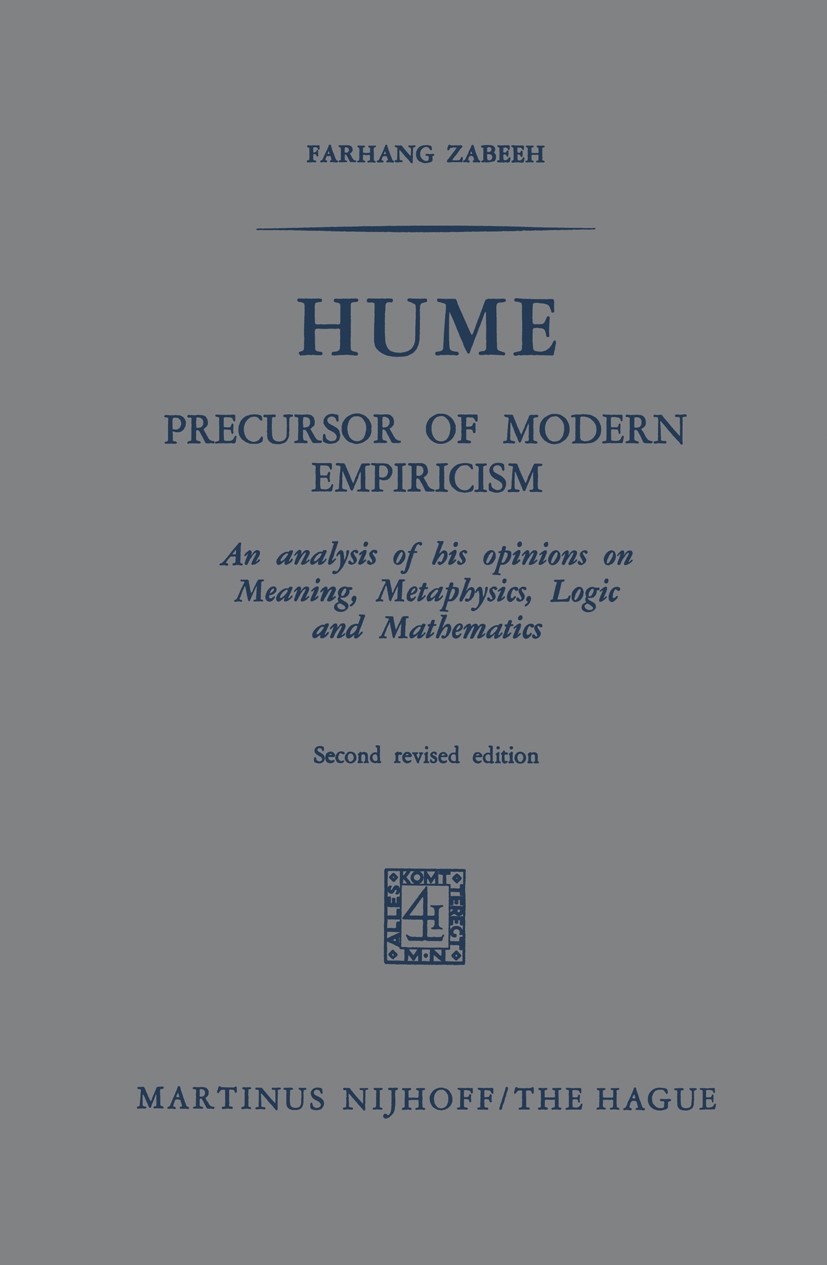| 書目名稱 | Hume | | 副標(biāo)題 | Precursor of Modern | | 編輯 | Farhang Zabeeh | | 視頻video | http://file.papertrans.cn/430/429917/429917.mp4 | | 圖書封面 |  | | 描述 | David Hume is the most influential precursor of modern empiri- cism. By modern empiricism, I intend a belief that all cognitive conflicts can be resolved, in principle, by either appeal to matters off act, via scientific procedure, or by appeal to some sets of natural or conventional standards, whether linguistic, mathematical, aes- thetic or political. This belief itself is a consequent of an old appre- hension that all synthetic knowledge is based on experience, and that the rest can be reduced to a set of self-evident truths. In this broad sense, Modern Empiricism encompasses classes, such as Logi- cal Empiricism, Logical Atomism and Philosophical Analysis, and unique individuals such as Russell and Moore. It excludes, thereby, the present day continental philosophies, such as Thomism, Exist- entialism, and Dialectical Materialism. Modem empiricists, to be sure, are influenced by many other phi- losophers. Locke, Berkeley, and Mill, among the classical empiri- cists, and Leibniz and Kant, among the rationalists (the former especially on the logico-mathematical side) in one way or other are responsible for the appearance of empiricism in its new form. But none of them were as inf | | 出版日期 | Book 1973 | | 關(guān)鍵詞 | David Hume; Plato; empiricism; human knowledge; interpret; issue; knowledge; logic; metaphysics; proposition | | 版次 | 1 | | doi | https://doi.org/10.1007/978-94-015-0707-3 | | isbn_softcover | 978-94-015-0208-5 | | isbn_ebook | 978-94-015-0707-3 | | copyright | Springer Science+Business Media Dordrecht 1973 |
The information of publication is updating

|
|
 |Archiver|手機(jī)版|小黑屋|
派博傳思國際
( 京公網(wǎng)安備110108008328)
GMT+8, 2025-10-7 21:00
|Archiver|手機(jī)版|小黑屋|
派博傳思國際
( 京公網(wǎng)安備110108008328)
GMT+8, 2025-10-7 21:00


